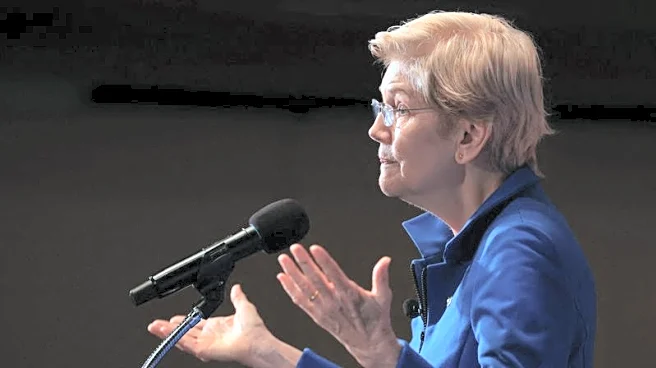What's Happening?
Wyndham's U.S. budget hotel segment is experiencing significant pressure due to weakening demand and pricing power, particularly in key Sunbelt states such as Texas, California, and Florida. The company's revenue per available room (RevPAR) fell by 5%
in the U.S. during the third quarter, with a more pronounced 10% drop in China. This decline is largely attributed to broader economic anxiety affecting lower-income consumers, who are more price-sensitive during times of economic uncertainty. Despite these challenges, Wyndham remains optimistic about future performance, citing pipeline growth and potential demand from upcoming large-scale events like the 2026 World Cup.
Why It's Important?
The challenges faced by Wyndham in the budget hotel market highlight the broader economic pressures impacting the hospitality industry, particularly among lower-income consumers. As economic uncertainty persists, consumers are becoming more cautious with their spending, affecting demand for budget accommodations. This situation underscores the importance of strategic planning and adaptability for companies operating in the hospitality sector. Wyndham's focus on pipeline growth and event-driven demand suggests a proactive approach to mitigating current challenges and positioning for future recovery. The outcome of these efforts could influence the company's market position and financial performance in the coming years.
What's Next?
Wyndham is likely to continue monitoring economic trends and consumer behavior to adjust its strategies accordingly. The company may focus on enhancing its value proposition to attract price-sensitive consumers while leveraging upcoming events like the 2026 World Cup to boost demand. Additionally, Wyndham might explore opportunities to expand its presence in markets showing resilience, such as certain Midwest regions. The company's leadership will need to navigate ongoing economic uncertainties and market dynamics to maintain competitiveness and drive growth.
Beyond the Headlines
The situation faced by Wyndham reflects broader economic challenges that could have long-term implications for the hospitality industry. As consumers become more price-sensitive, companies may need to innovate and diversify their offerings to remain competitive. This could lead to shifts in business models, with increased emphasis on value-added services and experiences. Furthermore, the disparity in pricing power between economy and luxury hotels may prompt industry-wide discussions on pricing strategies and consumer engagement.


















